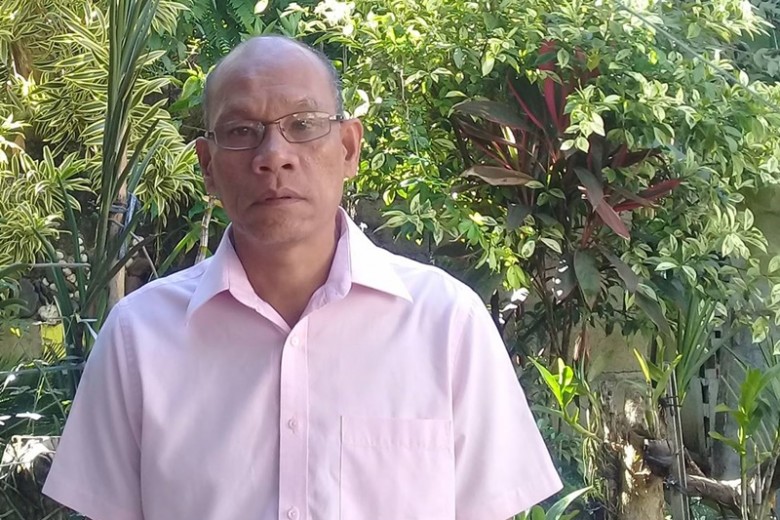
Roy Bero, Site Coordinator for El Nido in the Philippines.
Roy Bero – Meet the Team
September 20 2017
Roy Bero, Site Coordinator for El Nido in the Philippines, is a man of simple pleasures. His favourite meal is a plate of steaming white rice and nilagang talbos ng kamote (boiled camote tops), dipped in fish sauce and chili. On a really good day, he would be enjoying it on the beach.
Growing up close to the ocean, he has always felt most at home in nature. Although he lives in Puerto Princesa, Roy is an El Nido local, which is one of the reasons he continues to work with CCRES.
Roys say, “Mahalaga ang El Nido sa akin, El Nido is close to my heart.”
Roy has been with the CCRES Project since the beginning, facilitating focus-group discussions for the systems dynamics component and participating in various activities for the business development research. As site coordinator, his main tasks are to organise field activities in El Nido, and sustaining good communication with the local government, barangay (village) chairs, and communities.
Roy believes that the research from CCRES can help El Nido along a path of sustainable development, mentioning how our tools are able to show the benefits and impacts of decisions over time.
“[Pwedeng] tuluy-tuloy ang pag-unlad pero may konsiderasyon sa kung ano ang kakayahan ng El Nido. Dapat malaman hanggang saan ang kaya. Development in El Nido should consider [its carrying] capacity, and limits of change,” said Roy.
“Pwedeng balikan ang mga desisyon. May benepisyo ba, sustenable ba? Masmalinaw ang mapagpipilihan ng desisyon kung nilapat mo ang ginawa ng CCRES. Decision-makers can go back and evaluate their decisions. Are these beneficial? Are these sustainable? There will be clearer decision options when they use what CCRES has developed.”
Roy has worked on many projects using a participatory process, but appreciates CCRES for its “many dimensions.”
“Ang hard science, cross-validated sa social science, hindi sila pwedeng ihiwalay. Hard science is validated through social science, you cannot separate the two,” he said.
He remembers how, during the focus-group discussions for the systems dynamics group, the interactions and feedback loops made an impression on both himself and the participants.
“Pag may ginawa ka sa lupa, may epekto sa dagat. When you do something on land, this has an effect on the ocean,” he said.
Roy says that he learned most of what he knows from experience, an attribute that has served him well in his work as an advocate for environmental protection, community development, and Indigenous Peoples’ concerns. Though he did not have a formal education, he is proud to be able to engage with individuals with different backgrounds and specialisations, in both informal and formal settings. As a teacher and mentor, Roy has also shared his practical knowledge with young researchers.
Roy envisions developing a local pool of technical experts able to apply the CCRES tools and other innovative approaches. “Technical na, may puso pa, technical with a heart.”
When Roy isn’t visiting in the barangays, you’ll probably find him gardening at home, singing the lyrics to his favourite love ballad, “Sana maulit muli/ Ang mga oras nating nakaraan. I wish we could do it all again/ All the moments that we shared.”



